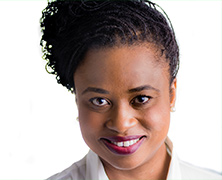Using My Privilege to Change Outcomes
What ignites my passion is social justice. My starting place is a deep understanding that this is not an equal playing field for all communities and identities due to historical legacies of oppression, such as slavery, patriarchy, and colonization. These legacies of oppression continue to impact marginalized communities today and contribute to compounding effects of disparities for disenfranchised groups. I am very aware of my own areas of privilege and the ways that I benefit from historical and present patterns of injustice. I am committed to using areas where I have the societal advantage to challenge and change outcomes for parents and youth on the margins.
As a senior leader in the public sector, I am passionate about supporting other leaders in understanding how to integrate equity within their leadership. This includes being aware of your influence and impact as a leader, as well as using areas of unearned privilege to become effective organizational allies. Historically, senior leadership in child protection has been middle-aged white males, with few examples of racialized women and men in positions of leadership, which has made it hard for me to find and connect with mentors. As a result, I have made a personal commitment to support and mentor emerging racialized leaders in order to develop a diverse responsive pool of leaders within my organization and sector.
The field of child welfare is very complex, and it’s easy to become lost in organizational challenges at the expense of those we serve. My priority and goal is always to stay connected to the reality of the challenges and barriers that families face so that I don’t become desensitized, and always to remain compassionate and responsive. I know that undoing patterns of injustice will take many years and though it is easy to become discouraged, I remind myself that although change is slow it is possible. I am committed to being a part of the solution and not adding to the barriers and problems for those who are most vulnerable.







